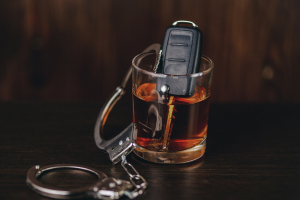
Wondering how to avoid a DUI conviction? Many online articles give tips and tricks to avoid a DUI charge. Some emphasize not drinking and driving, but the reality is that avoiding a DUI charge is more than just not drinking and driving; it also entails finding effective legal DUI defenses and proper representation. Maximize your chances of getting a not-guilty verdict! Read further and explore the information revealed in this guide.
For a DUI conviction in court, the prosecution must prove beyond a reasonable doubt that you were:
A DUI defense lawyer will often focus on these two areas since the prosecution must prove both for a compelling conviction. For example, a good DUI lawyer can chip away at the state's evidence to support the argument of "actual physical control." Other defenses may be possible depending on the details of the field test administration, the stop, arresting processes, and legal procedures.
Did you know that as many as 50% of people arrested for drunk driving are never convicted? The key is to have the proper DUI defense. Here are the 10 best defenses against a DUI and how to use them:
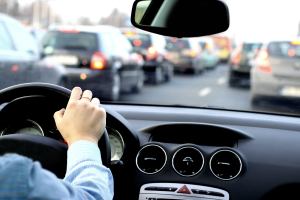
You're more likely to make mistakes behind the wheel when you're a new driver. You might be more likely to swerve or lose control. You might forget which lane it is you're supposed to be in. Several factors that come together to cause what's generally referred to as "inexperienced driving" can also make it seem like you were drunk driving. That can make it hard for you to fight DUI charges if you get stopped by a police officer.
Some people believe that inexperience is a way for drivers with DUIs on their record to get out of DUI arrest. Still, in reality, inexperienced driving is just one of many DUI defenses that have been used successfully by a DUI attorney who is well-versed in the law and knows how to present your DUI case.
The police should justify DUI stops with probable cause or reasonable suspicion. According to the Fourth Amendment, traffic stops are a "seizure" by the police and constitute temporary imprisonment.
The most frequent justifications police provide for driving while intoxicated (DWI) stops include drivers displaying NHTSA driving impairment behaviors, speeding, or running stop signs.
Important points:
Your experienced defense attorney could submit a request to suppress evidence to remove any evidence gathered by an unlawful search if the officer did not have reasonable suspicion or probable cause for the stop. Except for DUI sobriety checkpoints, the authorities can exclude the DUI BAC tests as admissible evidence through a suppression motion, often known as a "1538.5 motion."
Since 23152 VC includes several criteria police must prove with legitimate and admissible evidence, suppressing substantial evidence can dramatically increase the chances of getting dismissed by a DUI.
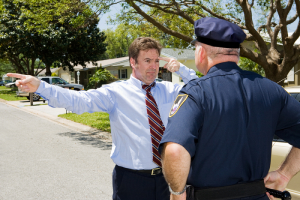
The Standardized Field Sobriety Tests (SFST) in California are unreliable indicators of impairment.
Only three Field Sobriety Tests have sufficient data to prove their accuracy:
These are results of Field Sobriety Tests performed correctly under perfect settings, which is rarely the case. Those who have taken a field sobriety test will confirm that they are difficult to pass even when awake, let alone in the late hours of the night.
Possible causes of innocent test failures include:
A breath test is only as good as the machine you administer; if it isn't properly maintained, you might not get an accurate reading. A malfunctioning breathalyzer can produce inaccurate results to convict someone of a crime they didn't commit.
To successfully challenge your DUI charges, get a Los Angeles defense attorney to represent you immediately.
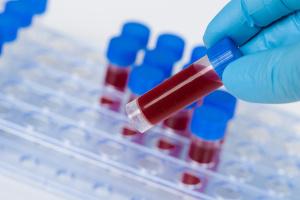
Your DUI chemical test results might be inaccurate if you had rising blood alcohol when you got arrested. During the longer duration of the DUI investigation, your blood alcohol level may have exceeded the permitted level. You have a solid and convincing case against a DUI charge because your blood alcohol content while driving is the only factor that counts.
One of the best DUI defenses to use is that your BAC was high due to underlying medical conditions, which caused you to have an increased bac. An attorney will typically examine your medical history, look for key signs of conditions that cause an increased BAC, and then use this as an argument for why your BAC was higher than it should be.
If you have a history of migraines, diabetes, seizures, or any other condition that causes an increase in blood sugar or blood pressure, you're more likely to end up with a high BAC. These conditions result in the body having a lower tolerance for alcohol, so even if you're only drinking half as much as someone else, you could quickly end up with a higher BAC.
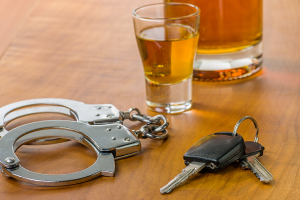
When you're fighting DUI charges, the most important thing you must remember is that the police can't prove your guilt beyond a reasonable doubt.
One of the most common defense strategies is a lack of evidence. It could be because you never had sobriety tests, or it could be that the actual arrest was not legally valid (for instance, because there was no good reason for the officer to pull you over).
Also, in most DUI charges, the police reports and information that the police officers had before they arrested you (e.g., blood alcohol test results) are not admissible in court because they didn't gather it by legal procedure. The only evidence they can use against you is what they gathered after your arrest (e.g., a breath sample or field sobriety test), which is not reliable enough to convict you on their own.
So if there's not enough proof in your DUI charges, your DUI attorney can argue that there's insufficient evidence to convict you.
In some cases, the defense might be able to prove the alcohol in the mouth caused the high BAC, which messed up any subsequent breath test. Remember that "mouth alcohol" only matters regarding breathing tests. When giving a blood sample, it doesn't matter if there is alcohol in the mouth.
The defense might be able to show medical or dental records about a condition that could have caused alcohol to be in the mouth and change the breath test results. It may be necessary to have expert witnesses explain to the prosecutor or jury why the defendant's condition would have caused mouth alcohol and what effect it would have had on the results of any subsequent breath test. The prosecution may agree to drop the charges or offer a plea deal for a lesser DUI charge if they present this evidence.
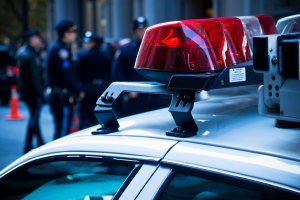
Before the police "take you into custody," they must tell you your Miranda rights. Once a DUI defendant is in police custody, they must tell the defendant that he has the right to remain silent, talk to a DUI attorney, or have one appointed if he can't pay for one. They must also tell him that anything he says can be used against him.
Before that, the police could ask any question they wanted, and the answer would probably be allowed in court. But once a DUI suspect is in police custody, it is up to the state to show that the suspect's Miranda rights were read, understood, and agreed to. If not, any statements a suspect makes cannot be used as proof.
The court will throw out any statements taken without following Miranda.
A DUI lawyer for your defense can look at the details of your case to figure out when you were "taken into custody." Based on this analysis, you may have a defense under Miranda.
Some people think sobriety checkpoints are against the Constitution and don't follow the rules about probable cause. However, the California Supreme Court ruled that DUI sobriety checkpoints are legal administrative inspections, like airport security checks, that don't have to follow the rules about probable cause in the 4th Amendment.
Even though police don't need a reason to stop a driver at a sobriety checkpoint, they still have to follow many strict laws:
If the police fail to fulfill these conditions, an experienced DUI lawyer can contest any ensuing DUI charge.
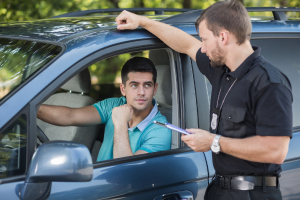
Being stopped by the police for a DUI check is intimidating and aggravating. You are probably angry, scared, or both. However, knowing what to do in this situation is better than choosing not to do anything at all.
Here's what you should do:
Being pulled over for a DUI check isn't something many of us have experienced. But what should you do when you pull over? Remain calm. First and foremost, don't panic. Look into your rear-view mirror to find the police officer's car behind yours. Moving slowly to the right side of the road will make it easier for the police officer to pull alongside your vehicle. When you pull over, turn off your car and open your window.
When asked for your license and registration, hand both documents to the police officer without saying anything else. You must stay silent until asked a question by the DUI arresting officer—you want to avoid accidentally pleading guilty to anything if you aren't 100% sure it's valid or relevant. Don't get out of your vehicle unless instructed to do so—remaining seated in your car gives you a much better chance of staying in control and calm than standing next to it.
Suppose, during the DUI investigation, law enforcement officers have reason to believe that you are driving under the influence of drugs or alcohol. In that case, they will ask you to perform field sobriety tests or submit to a breathalyzer or blood test. When this happens, it's essential to remain calm.
Don't make any suspicious movements when a police officer approaches your car after you pulled over to check whether you're driving under alcohol or drugs influence. Any sudden movement could be a sign of aggression. For example, if you quickly adjust the rear-view mirror, the officer may think you're trying to get away from him and pull you over.
Inevitably, doing anything that could be considered suspicious will make the officer more nervous around you—and he may think he has probable cause to search your car for drugs or alcohol. If he does find either, you could be in a lot of trouble. And if he suspects you have either but can't find them, you won't escape without an embarrassing field sobriety test.
Staying polite and respectful is essential in any situation. But when you have to pull over for a DUI check, your demeanor can significantly influence how things play out. If you're rude or aggressive with the officer who pulls you over, it's more likely that he will take a harder line on the situation.
If you act politely, it'll be easier to get the police officers to see your side and resolve the matter as quickly and efficiently as possible. Remember that they are not there to punish you—they protect and keep everyone safe. You won't find yourself in trouble if you are polite and cooperative.
Self-incriminating questions are those that demand an admission of guilt or blame. You should not answer any self-incriminating question, even if you are innocent of the investigated crime. Answering these questions may lead to DUI arrests, even if you are innocent. The police can arrest you for refusing to answer a self-incriminating question, but it is not illegal for you to remain silent.
To determine whether a question is self-incriminating, ask yourself the following:
1) Does the question make me admit I have committed an offense?
2) Does the question make me admit I am responsible for what happened?
3) Does the question make me admit to engaging in conduct that could be considered unlawful?
4) Does the question make me admit to engaging in conduct that could be considered immoral or unethical?
5) Does the question make me admit to engaging in conduct that could be considered socially unacceptable?
The law doesn't require you to take a field sobriety test. Field sobriety tests are one of the best ways for the officer to gather evidence against you. This test is not because they are good ways to tell if you are drunk, but because they give the arresting officer subjective information that he can use to decide if you are drunk or not.
Refusing a field sobriety test could lead to your driver's license suspension.
Would you rather have a scientific test say you weren't drunk or impaired or have an arresting officer testify for an hour about how stinking drunk he thought you were based on a nonscientific field sobriety test?
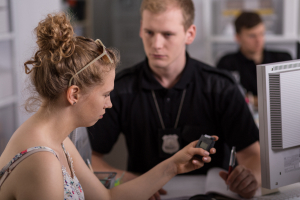
By law, you must go to the police station and take a chemical test. You can choose between a blood test and a breath test in most states. A skilled DUI lawyer tells their clients to take breath tests because they are less accurate and can be questioned more easily in court.
While it's true that you have the right to remain silent and that anything you say can be used against you in court, it's also true that you have the right to speak with defense attorneys before making any statements about your crime. And when it comes to driving under the influence charges, it's crucial to remember your rights and ensure an experienced legal professional protects them.
Finding a good lawyer is the first step in protecting your future and ensuring you'll get the best possible outcome for your DUI cases.
There are many different types of lawyers, but finding someone who specializes in DUI defense is vital for ensuring that your rights are preserved and respected throughout the process.
Learn More: Steps to Take After a DUI in Los Angeles
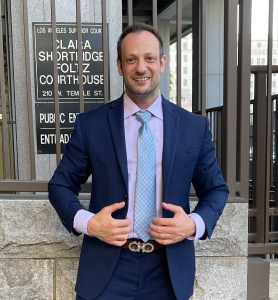
The Los Angeles DUI defense law firm Hurwitz Law Group can assist you with your DUI case. With years of experience defending DUI cases, we have the necessary knowledge and resources to help you with your case.
Hurwitz Law Group skillfully handles a DUI defense. We have achieved successful outcomes for many clients, using our knowledge and skills to defend people falsely accused of DUI. We know how to work within California's laws and court systems to protect your rights and how to challenge the prosecutor's evidence against you. Our goal is to get the best possible legal defense for your case.
We can assist you with any related issues arising from a DUI conviction, including license suspension and administrative penalties by the Department of Motor Vehicles (DMV) or Motor Vehicle Division (MVD), or even civil liability for damages caused by your arrest.
We invite you to contact us if you have DUI charges or if you want to learn more about how we can help. Reach us by phone at (323) 310-9677 or send us an e-mail through our contact form.
Search
Categories